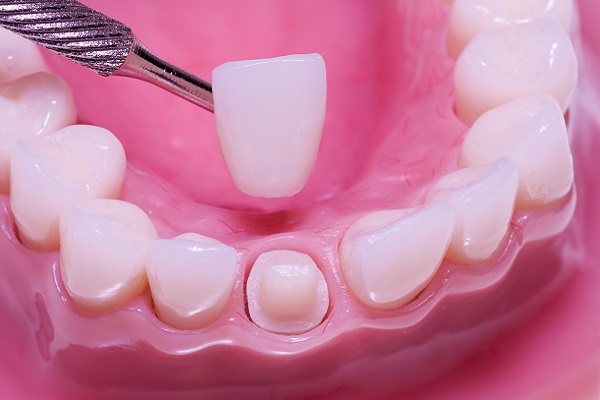 A cosmetic dentist performs procedures every day that improve the look of a patient's smile and help build confidence. Veneers are an option for patients who do not like the appearance of the teeth due to shape, size, damage or alignment. Applying veneers involves a multi-step process that includes permanent removal of some of the natural enamel of the teeth, so many patients have questions about the procedure before committing.
A cosmetic dentist performs procedures every day that improve the look of a patient's smile and help build confidence. Veneers are an option for patients who do not like the appearance of the teeth due to shape, size, damage or alignment. Applying veneers involves a multi-step process that includes permanent removal of some of the natural enamel of the teeth, so many patients have questions about the procedure before committing.
Necessary steps a cosmetic dentist takes when applying veneers
Many patients like the results they see on others who have received veneers to correct smile issues. For patients considering a smile makeover or looking for ways to correct damage to the teeth, learning more about the veneer process can help make the decision easier.
Planning
The first step for obtaining dental veneers is planning. The cosmetic dentist evaluates the condition of the teeth and speaks with the patient about the goals and desired outcome. If the patient is not a good candidate for veneers, the dentist can provide other viable options. If the patient is a good candidate, the dentist gives an overview of the process and schedules the necessary visits. Some patients need other types of correction before moving forward with veneers, such as filling cavities, improving gum disease or addressing oral hygiene concerns.
Preparation
Veneers are constructed from porcelain or a dental composite material. First, the dentist cleans the patient's teeth and makes an impression to send to a specialized laboratory. The dentist then removes tooth enamel so the veneer will have a place to attach.
The amount of enamel that must be removed depends on the thickness of the veneer to be used. The removal is necessary to maintain the same thickness as the natural tooth and to give the veneer a proper surface for bonding. Some modern veneers are very thin and do not require an excessive amount of enamel removal. Veneer construction can take a few weeks, so in the meantime the patient may be fitted with temporary veneers.
Bonding process
To bond the veneers to the teeth, the dentist etches the surface of each tooth to make the attachment stronger. A fit test takes place and each veneer is adjusted as needed. The veneers are then bonded to the teeth using a special dental cement or adhesive. The fit is checked again once the veneers have been placed and bonded to the teeth, and any overflow cement is removed. The patient then should schedule a follow-up visit to make sure goals have been met.
Check out what others are saying about our dental services on Yelp: Cosmetic Dentist in Los Angeles, CA.
Conclusion
During the consultation with a cosmetic dentist, patients may have many questions about the process of getting veneers. Before veneers can be placed, a portion of the natural tooth enamel must be removed to maintain the proper amount of tooth thickness and to give an abrasive surface to adhere the veneers. Patients who learn more about the veneer process are better able to make an informed decision before moving forward.
Request an appointment or call Sylmar Dental & Braces at 818-362-8333 for an appointment in our Los Angeles office.
Recent Posts
Many people have questions about cosmetic dentistry and cosmetic dentists, but they don't always know where to find answers. This article will answer some of the most common questions that cosmetic dentists get asked, so you can feel more confident in your decision to pursue cosmetic dental care.Cosmetic Dentistry includes any treatment which improves the…
Looking for information on what a cosmetic dentist can do for your smile? Cosmetic dentists improve the appearance of their patients’ smiles through various services that fix imperfections with the teeth and gums. When choosing a cosmetic dentist, it is important to consider the experience level and find one that meets your specific need.An experienced…
Usually, patients can expect a dental crown to last around five to 15 years. But the life of a dental crown might depend on how much wear and tear the restoration undergoes. Plus, avoiding habits like clenching the teeth or chewing hard objects is advisable. That can extend the life span of the crown. Keep…


